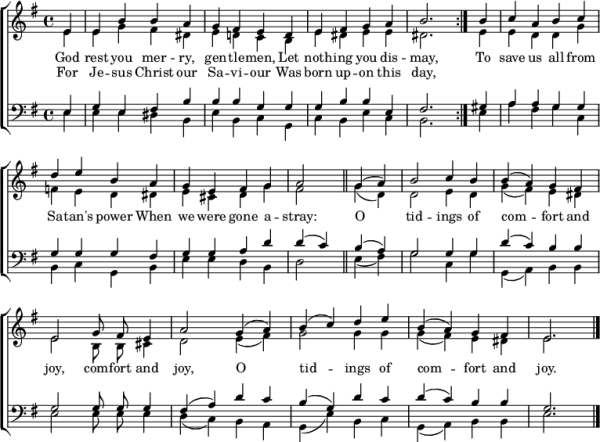It’s that time of year again and, much to the discomfiture of my dear sister, Slade and Wizzard are busy filling the space in the Temples of Mammon with their decades-old guaranteed pension payment ‘Christmas’ songs, whilst in less venal environments, ‘Bah! Humbug!’ is being exclaimed by curmudgeons embracing their inner Ebenezer Scrooge and in yet other spaces, carols are being sung; and not just in church either.
According to Wikipedia, the English word carol is derived from the Old French word carole, a circle dance accompanied by singers. Carole itself is derived from the Latin choraula. Carols were very popular as dance songs from the 1150s to the 1350s, after which their use expanded as processional songs sung during festivals, whilst others were written to accompany religious mystery plays (such as the “Coventry Carol“, written before 1534).Just as in normal speech, punctuation is important in singing as it determines how the words are to be sung and with what emphasis.
How many readers have noted the comma in God rest you merry, gentlemen? The comma is essential to denote that the menfolk in question are being wished a merry time, which is a somewhat different prospect from what is brought to mind by the comma-less merry gentlemen who have clearly been indulging in Christmas cheer and probably need a lie-down and a nap.
Here’s a handy video to explain the pendantry.
For those who doubt the existence of the comma, here’s the sheet music for confirmation.

Tip o’ the hat: David Allen Green